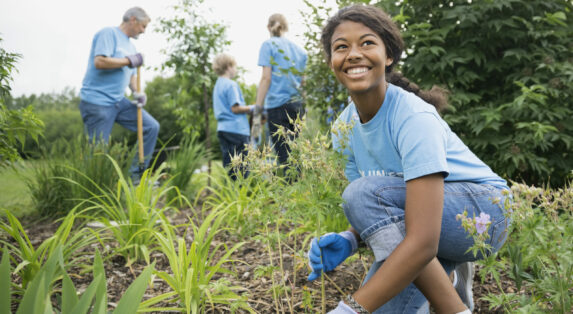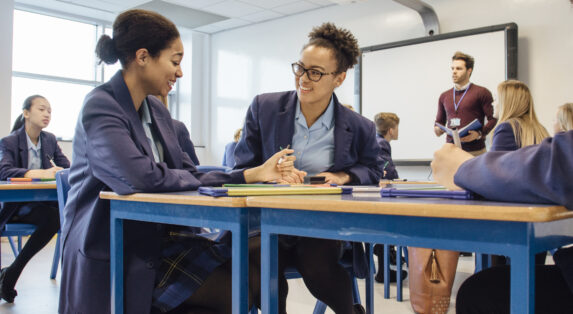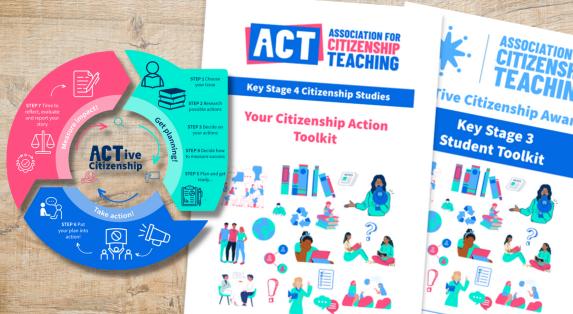
Primary teacher experiences of youth social action
In this guest blog, Nik Gunn, Researcher at The RSA, explores primary teacher experiences of facilitating youth social action alongside their pupils.
Primary teacher experiences of youth social action
If you’re reading this blog, you probably don’t need to be convinced of the benefits of active citizenship for young people. We know that participating in youth social action can help pupils to develop a range of important skills while making a positive impact on their communities. But how do teachers experience doing youth social action work alongside their pupils?
This is the question the RSA, in partnership with the Pears Foundation, set out to answer as part of our Third Benefit investigation into youth social action, culminating in the publication of our Make It Authentic report in July 2023. We posited that teachers would also benefit from doing active citizenship work—a “third benefit” to complement the benefits to pupils and communities. At the end of 2022 we commissioned a Teacher Tapp survey of over 2,000 primary school teachers around the UK to understand their experience of facilitating youth social action projects. To supplement this, we worked closely with ten partner schools across England, conducting in-depth interviews with teachers and pupils who were already leading work in this space.
At a time when the teaching profession is under a lot of pressure, we found that educators identified various ways they thought that active citizenship might benefit them. 62% suggested it would help to build positive relationships across their community, with a further 43% saying they’d feel more empowered within the community. 46% thought that youth social action work would contribute to an improved sense of wellbeing. In terms of motivations for pursuing active citizenship work with their pupils, more than half of the educators surveyed suggested that supporting positive outcomes for pupils and communities would be their priorities.
Our qualitative work in schools expanded on this picture. Teachers reported that youth social action energised staff, led to creative and unexpected learning opportunities, and allowed them to take risks with their teaching. They also valued being able to give pupils the ability to direct their own learning and the ability to forge partnerships with different community organisations. The picture is one of youth social action helping to free up educators’ teaching and broaden their role at a time when some perceive teacher autonomy as being under threat. One theme tying the above benefits together is an emphasis on teachers having autonomy to direct learning, free from the constraints of traditional assessment and learning parameters.
‘Make It Authentic’ primarily focuses on teacher experience and advice, but we also think there are some broad recommendations to be made at the systems level. While there is a coherent framework for citizenship education at KS1 and KS2, including encouragement for active citizenship, it remains non-statutory. As a result, it can be challenging for under-resourced schools to offer youth social action opportunities and evidence suggests that private schools are often better able to give opportunities. One repeated theme of our qualitative studies was that youth social action could only thrive where there was strong support from senior leadership. Given that this won’t always be guaranteed, we suggest that making citizenship education statutory at KS1 and KS2 would encourage senior leadership to take wider civic learning seriously and ensure it is properly resourced. However, any move to statutory status would have to be paired with greater emphasis on the civic importance of education during teacher training.
None of these issues and ideas will be new to members of ACT, but it’s important to restate the case in light of the clear challenges teachers face and the benefits that youth social action can have. By embedding it more firmly within school life, there’s a chance to shift not just the conversation around civic education, but around the role of teaching and learning in the twenty-first century.
About the author
Nik Gunn, Researcher, The RSA
Nik is a Researcher with the RSA Education Team, where he currently leads on the Third Benefit Project focusing on Youth Social Action in primary schools and the effect it has on teacher development.
Before joining the RSA, he lectured English at the University of Oxford and UCL for several years, teaching everything from medieval literature to the language of advertising. He completed his PhD at the University of York, where he is still a Research Associate. He has published everything from scholarly work to literary translations. Prior to his academic career, he worked as an outreach and then programme officer at an education charity.
Nik is passionate about education at all levels, but especially the importance of the arts and humanities to cultural, economic and social wellbeing. He believes that the classroom remains one of the most powerful participatory spaces still available to everyone regardless of background and that access to different types of knowledge is foundational to encouraging citizen participation.



